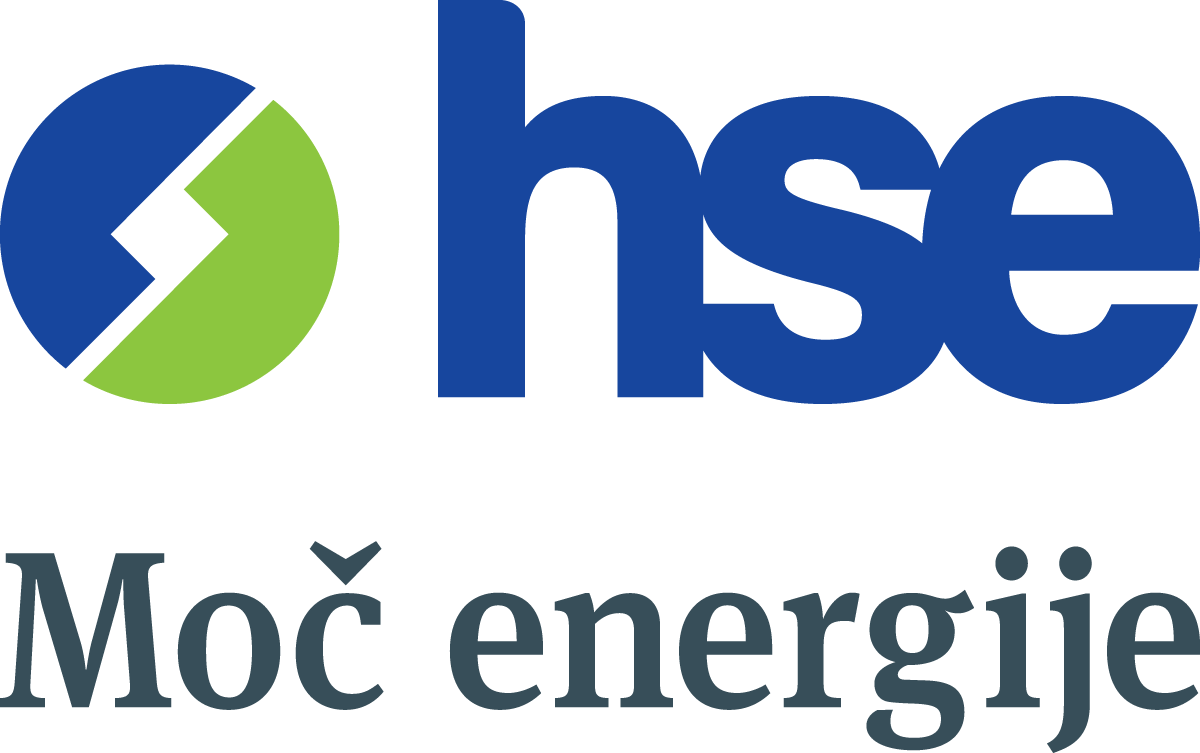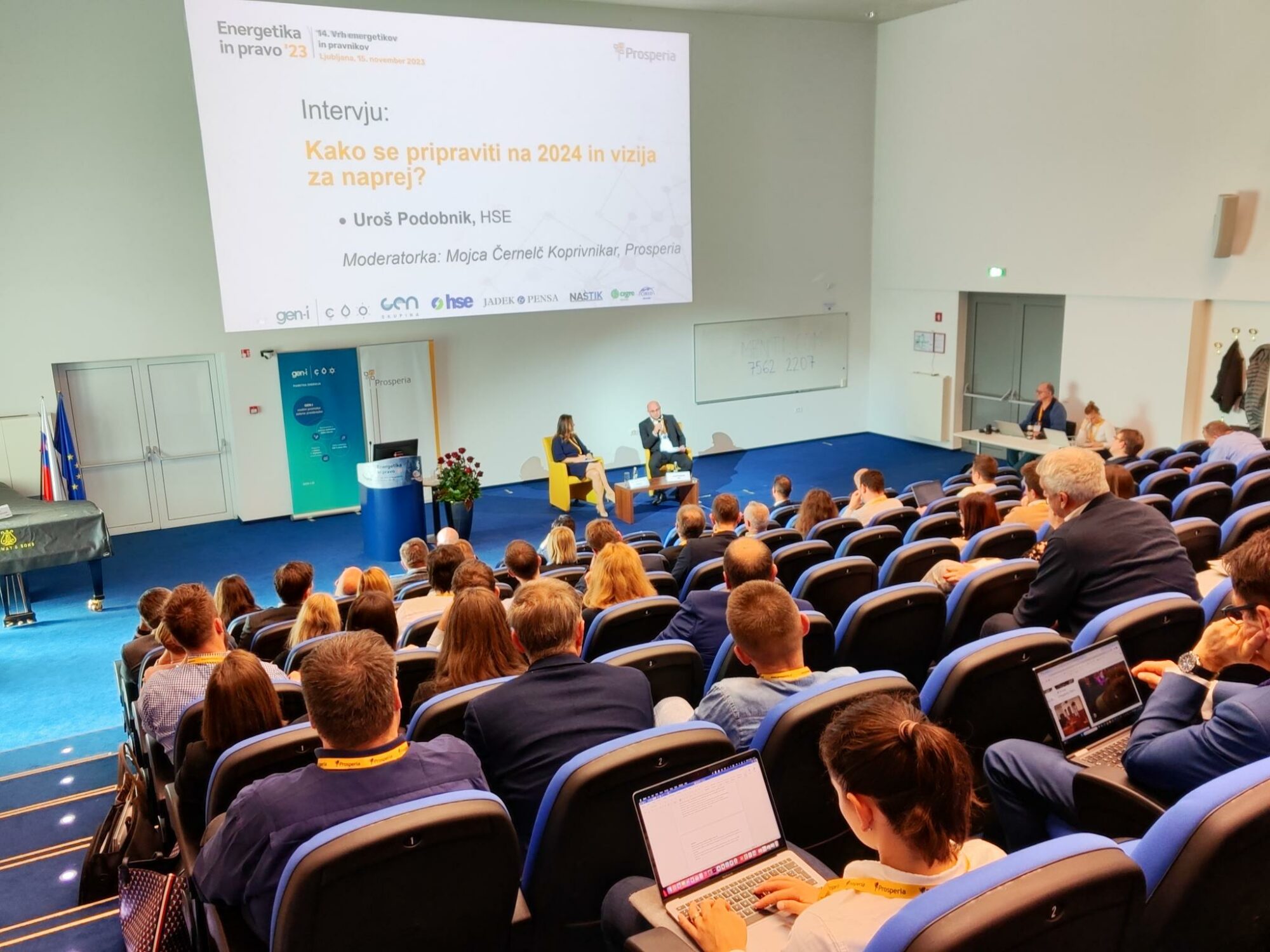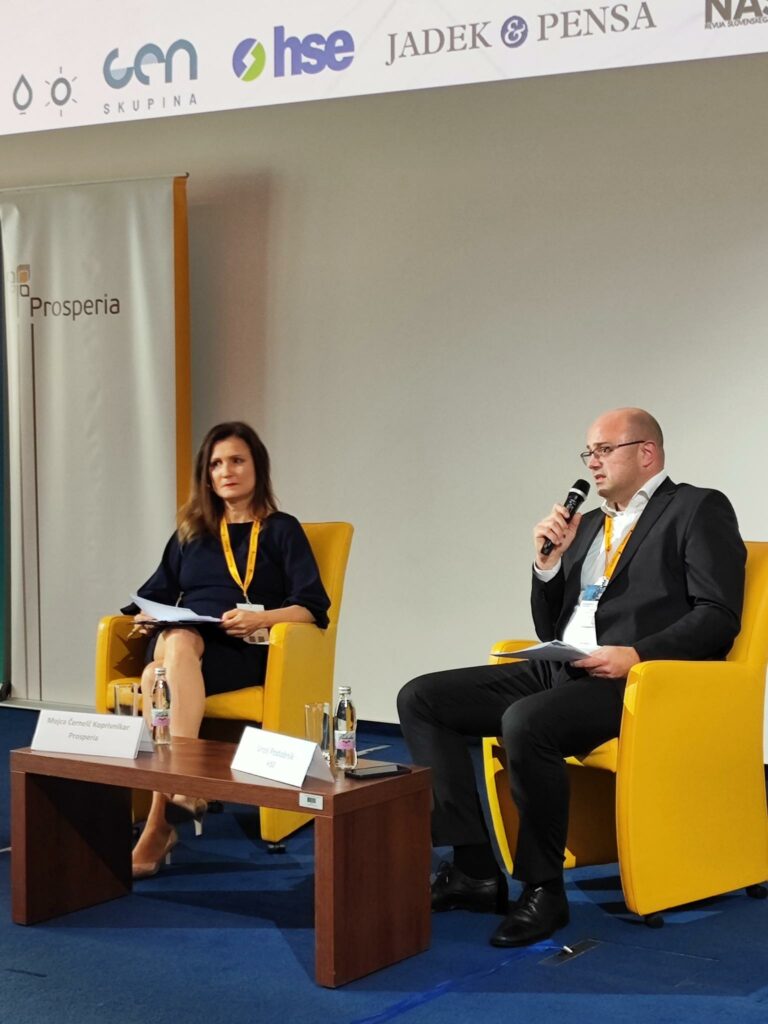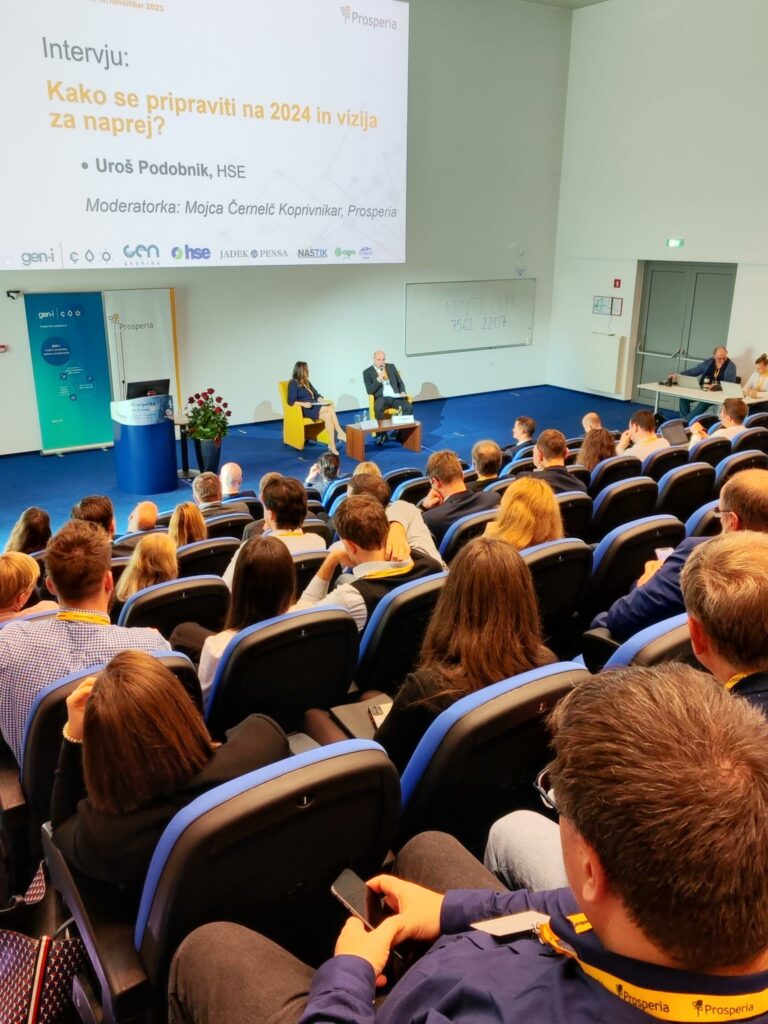Uroš Podobnik, the chief operating officer of HSE, participated on Wednesday, 15 November in the 14th Energy and Law Summit, at which experts in various fields discussed legal and social challenges related to legislation in the field of energy.
Slovenia is in a time of energy transformation, where a shift will have to be made from a period of planning to the implementation of energy projects. Large infrastructure projects will become our reality, so all experience from experts who have already participated in such projects will come in handy. What went wrong in the case of the construction of Unit 6 (of the TEŠ thermal power plant) from a legal point of view, what we learned from it and what it means for future projects, the chief operating officer Uroš Podobnik told the audience. “A lot of time has passed since the settlement with the General Electric Group regarding Alstom’s involvement in the project to construct Unit 6 of the TEŠ, and the procedures between General Electric and the HSE Group have been concluded, so the time for catharsis has arrived“, he announced as he began his address. An out-of-court settlement worth over EUR 261 million was concluded in this regard. “A review of the documents related to this court case revealed a series of irregularities, from tailoring the invitation to tender to one bidder to adjusting the final value of the project and misleading key decision-makers,” he said. “It is imperative that state-owned companies receive multiple bids in public procurement procedures and that they do not favour anyone,” he noted and called for public procurement: “Make use of technical and professional dialogues as early as in the preliminary phase, before the invitation to tender, as these give you great negotiating power for later.”
He also talked about the role of control mechanisms, which failed during the signing of the contract for the construction of Unit 6, while completely different tactics were used in the settlement: “The signing the contract was about convincing lying to all possible partners, while part of the public and the media also applied pressure for the facility to be built. When the settlement was being reached, however, we used the opposite tactics. We practically did not involve the media, we prepared everything in a small team where confidentiality was possible, which is the correct thing to do in such procedures, while we proactively updated the owner, management and supervisory board.”
The past experience is the reason why the corporate culture in HSE was changed, with a lot of permissions and consent from stakeholders being required for a project to be implemented. In conclusion, he noted that the key for successful and optimal implementation of large infrastructural energy projects is knowledge and learning, and that the cooperation of all relevant professional teams from various fields is required.
A lot of interesting and useful legal information was also provided at the event, including the fact that the Energy Policy Act will be renamed the Energy Act 2, which was announced by Tina Seršen, a state secretary at the Ministry of the Environment, Climate and Energy. She also touched on the Climate Act, which will establish a comprehensive framework for climate policies. Most of the content and discussions were dedicated to network fees, as the system of charging network fees is planned to be reformed next year; Duška Godina, the director of the Energy Agency, spoke specifically about this. Erik Potočar of the Ministry of the Environment, Climate and Energy discussed changes in the legislation in the field of efficient use of energy and buildings, while Rajko Pirnat of the Faculty of Law of the University of Ljubljana talked about legal dilemmas regarding the abolition of concessions for natural gas. Self-sufficiency was discussed by Aleš Jurak from Resalta and Andrej Špec from Eles, who noted that energy communities will also be important building blocks for the green transition. Jure Levovnik of the Jadek & Pensa law firm talked about the legal aspects of energy storage from the point of view of greater resilience to energy crises, while Luka Jazbec from the company GEN-I discussed the practical effects of the energy reform at the EU level.
An exceptionally fruitful year in terms of energy legislation is behind us and we can hope for similar years in the future, which is why such events, which bring the active participation of experienced HSE representatives, will continue to be very relevant.










